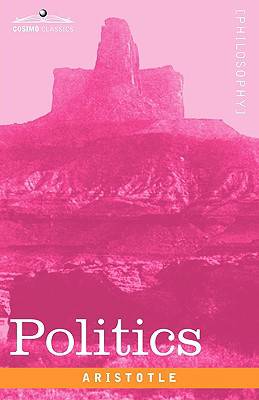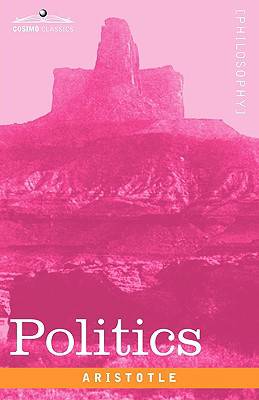
- Afhalen na 1 uur in een winkel met voorraad
- Gratis thuislevering in België vanaf € 30
- Ruim aanbod met 7 miljoen producten
- Afhalen na 1 uur in een winkel met voorraad
- Gratis thuislevering in België vanaf € 30
- Ruim aanbod met 7 miljoen producten
Zoeken
Omschrijving
The writings of Greek philosopher ARISTOTLE (384BC-322BC)--student of Plato, teacher of Alexander the Great--are among the most influential on Western thought, and indeed upon Western civilization itself. From theology and logic to ethics and even biology, there is no area of human knowledge that has not been touched by his thinking. In Politics--considered a companion piece to Aristotle's Nicomachean Ethics--the philosopher discusses the nature of the state, of citizenship, of public education and private wealth. In what is a response to the works of his teacher Plato, Aristotle explores the idea of the individual household as a microcosm and building block of the state; examines trade and the economy as functions of human affairs; discusses the battle between self-interest and nationalism; and much more. This edition features the classic introduction by H.W.C. Davis, the renowned English historian of the early 20th century. Students of philosophy, government, and human nature continue to find Aristotle's Politics a provocative work more than two millennia after it was written.
Specificaties
Betrokkenen
- Auteur(s):
- Vertaler(s):
- Uitgeverij:
Inhoud
- Aantal bladzijden:
- 368
- Taal:
- Engels
Eigenschappen
- Productcode (EAN):
- 9781605203287
- Verschijningsdatum:
- 1/11/2008
- Uitvoering:
- Paperback
- Formaat:
- Trade paperback (VS)
- Afmetingen:
- 140 mm x 216 mm
- Gewicht:
- 467 g

Alleen bij Standaard Boekhandel
+ 51 punten op je klantenkaart van Standaard Boekhandel
Beoordelingen
We publiceren alleen reviews die voldoen aan de voorwaarden voor reviews. Bekijk onze voorwaarden voor reviews.











